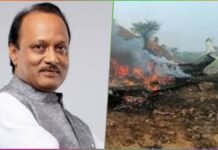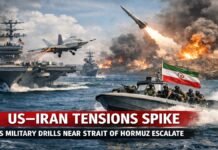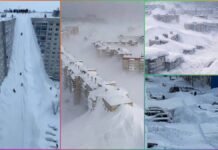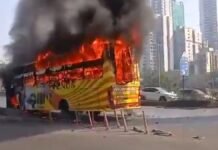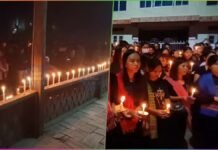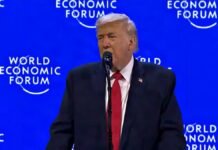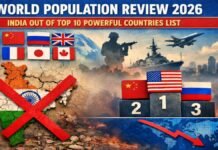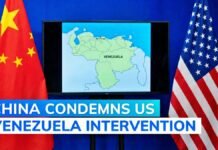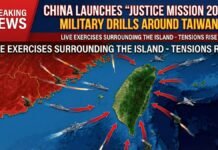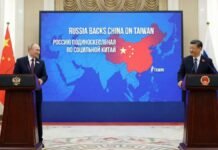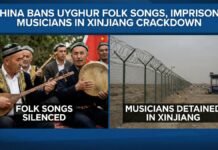
Key Points
- Putin and Netanyahu spoke on November 15, 2025, in a call initiated by Putin, marking their second conversation in two months.
- Key discussion topics included Gaza ceasefire implementation, hostage and prisoner exchanges, Iran’s nuclear program, and Syria stabilization efforts.
- The US has proposed a UN Security Council resolution to endorse Trump’s 20-point Gaza peace plan, with voting scheduled for November 17, 2025.
- Russia submitted its own counter-resolution on November 14, challenging the US draft and calling it unbalanced for not reflecting international legal frameworks.
- Israel and Hamas agreed to the first phase of Trump’s plan in October 2025, though Hamas has not fully accepted all terms.
- Trump’s plan includes immediate ceasefire, phased Israeli withdrawal, hostage release, demilitarization of Gaza, and creation of a “Board of Peace” transitional administration.
- Russia’s draft omits the “Board of Peace” concept and calls for the UN Secretary-General to outline options for an international stabilization force.
- Both China and Russia, along with some Arab states, oppose the “Board of Peace” proposal in the US resolution.
New Delhi: Amid the tense and complex situation in the Middle East, a significant high-level diplomatic contact took place between Russia and Israel on November 15, 2025. President Vladimir Putin and Prime Minister Benjamin Netanyahu held a lengthy phone conversation that focused on several critical regional security challenges.
The Russian Foreign Ministry confirmed on Saturday that the discussion covered developments in the Middle East, with particular emphasis on the Gaza ceasefire agreement and the exchange of detained persons. According to Netanyahu’s office, this call was initiated by Russian President Putin and represents the latest in a series of recent conversations between the two leaders.
Gaza Ceasefire and Hostage Exchange at Center of Talks
The primary agenda of the discussion was exploring pathways to end the ongoing conflict in the Gaza Strip and ensure the release of Israeli hostages held by Hamas. According to a more detailed statement cited by state-run TASS, the leaders conducted a “thorough exchange of views” on the unfolding situation in the Gaza Strip, focusing specifically on the implementation of the ceasefire agreement and the detainee exchange process.
Both leaders stressed the importance of implementing a comprehensive ceasefire and advancing the complex task of exchanging hostages and prisoners, which could serve as the first crucial step towards lasting peace in the region. The Russian Foreign Ministry emphasized that the discussion took place “in light of the agreement on ceasefire and the exchange of detained persons,” indicating active diplomatic momentum on these issues.
Iran’s Nuclear Program and Syria’s Stability
In addition to the Gaza conflict, Putin and Netanyahu also addressed two other critical regional security challenges that have implications for broader Middle East stability.
Iran’s Nuclear Program: The two leaders shared their concerns about Iran’s nuclear ambitions and discussed the current status of Iran’s nuclear program, which both nations view as posing a significant threat to regional security and stability. This topic has been a recurring theme in Putin-Netanyahu conversations, reflecting its importance to both countries’ strategic interests.
Syria’s Stability: Efforts to ensure continued stability in Syria were also discussed during the call. The situation in Syria remains strategically important to both Russia and Israel, with Russia maintaining a significant military presence and Israel conducting periodic strikes against Iranian-linked targets. The leaders focused on issues related to contributing toward further stabilization in the war-torn country.
US Pushes Trump’s 20-Point Gaza Peace Plan at UN
This important phone call comes at a critical diplomatic moment, as the United States has intensified its efforts at the United Nations. The US Mission to the UN this week formally urged the Security Council to endorse a draft resolution incorporating President Donald Trump’s comprehensive 20-point Gaza peace plan.
The US proposal will be put to a vote at the UN Security Council on November 17, 2025. According to reports from The Times of Israel, the draft resolution includes the entirety of Trump’s 20-point plan, which Prime Minister Netanyahu publicly endorsed during a joint press conference with President Trump in September 2025.
The key elements of Trump’s ambitious plan include several transformative provisions aimed at ending the two-year conflict:
- An immediate and comprehensive ceasefire between Israel and Hamas
- A phased, gradual withdrawal of Israeli military forces from Gaza
- The release of all Israeli hostages held by Hamas
- Demilitarization of the Gaza Strip and decommissioning of weapons from non-state armed groups
- Creation of a transitional technocratic administration in Gaza under an international “Board of Peace”
- Establishment of an International Stabilization Force (ISF) of approximately 20,000 personnel
- Long-term reconstruction and humanitarian assistance for Gaza
- Protection of civilians and securing of humanitarian corridors
The US draft resolution authorizes member states to establish the temporary International Stabilization Force, with a mandate running through 2027. The stated roles of this force include protecting civilians, securing humanitarian corridors, decommissioning weapons, and working with a trained Palestinian police force.[8]
Russia Counters with Alternative UN Resolution
Despite the Putin-Netanyahu dialogue, Russia has taken a confrontational stance at the United Nations. On November 14, 2025, Russia put forward its own draft UN resolution on Gaza, directly challenging the US push for Security Council endorsement of Trump’s plan.
In a note to Council members, Russia’s UN mission stated that its “counter-proposal is inspired by the US draft,” but argued that significant modifications were necessary. The Russian Permanent Mission to the UN explained: “Russia was forced to prepare an alternative draft UN Security Council resolution to the American one on achieving sustainable peace in Gaza”.
According to the Russian mission, “The objective of our draft is to enable the Security Council to develop a balanced, acceptable, and unified approach toward achieving a sustainable cessation of hostilities”. Russia argued that UNSC resolutions must reflect universally recognized international legal frameworks and reaffirm fundamental decisions, particularly the two-state solution for the Israeli-Palestinian settlement, which they claim were not given due regard in the US draft.
Key Differences in Russian Alternative
The Russian draft, reviewed by Reuters, contains several significant differences from the US proposal:
Omission of “Board of Peace”: Most notably, Russia’s draft omits any reference to the “Board of Peace,” the transitional administration structure proposed in the US plan. This concept has proven controversial among several Security Council members and regional stakeholders.
UN Secretary-General Role: Instead, the Russian draft calls on the UN Secretary-General to outline options for an international stabilization force in Gaza and prepare a report for the Security Council with options for implementing relevant provisions of Trump’s plan.
International Legal Framework: Russia emphasizes that its resolution better reflects international legal principles and the long-standing two-state solution framework.
According to the Associated Press, citing four UN diplomats, both China and Russia have called for the proposed “Board of Peace” to be removed from the UNSC resolution. Some Arab states have also expressed concerns about the temporary governing structure for Gaza and the lack of a transitional role for the Palestinian Authority in the US plan.
Israel and Hamas Positions on Trump’s Plan
Israel and Hamas agreed in October 2025 to the first phase of Trump’s 20-point Gaza plan, reached amid their two-year conflict and a related hostage-release arrangement. Trump’s proposal gained broad backing at a summit in Sharm el-Sheikh, Egypt, on October 13, 2025, and Israel publicly endorsed the full plan after Trump unveiled it on September 29, 2025.
However, Hamas has not fully accepted all terms of the comprehensive plan, creating uncertainty about its ultimate implementation. The group’s partial acceptance represents a significant diplomatic challenge, as full implementation requires agreement from all parties to the conflict.
International Stabilization Force Considerations
While Trump has ruled out deploying US troops to Gaza, US officials have outlined plans for a potential international force of roughly 20,000 personnel. The US has held talks with several countries regarding possible contributions to this stabilization force, including Indonesia, the United Arab Emirates, Egypt, Qatar, Turkey, and Azerbaijan.
Countries that have expressed willingness to contribute troops have indicated they would need a formal UN Security Council resolution enshrining the force before committing personnel. This makes the November 17 UNSC vote particularly significant for the plan’s practical implementation.
The proposed ISF is meant to coordinate closely with Israel, Egypt, and a newly trained Palestinian police force. Its mandate would include protecting civilians, securing humanitarian corridors, facilitating reconstruction, and ensuring the demilitarization of militant groups.
Recent History of Putin-Netanyahu Dialogue
Putin and Netanyahu last spoke in October 2025, at the height of international consultations around Trump’s peace plan. During that September-October conversation, Putin reiterated Moscow’s stance “in favor of a comprehensive settlement of the Palestinian issue”.
Netanyahu’s office noted that the November 15 call was the latest in a series of recent exchanges between the two leaders, adding that their discussions have consistently focused on regional issues. According to Israeli readouts, Putin initiated the latest discussion, which, like recent exchanges, “dealt with regional issues,” though the Prime Minister’s Office did not elaborate further on specific details.
The frequency of communication between the Russian and Israeli leaders, particularly given Russia’s close ties with Iran and its military presence in Syria, underscores the complex diplomatic balancing act both nations maintain in the volatile Middle East region.
Strategic Implications
The Putin-Netanyahu call highlights Russia’s continued engagement in Middle East diplomacy despite its international isolation over the Ukraine conflict. Russia maintains strategic relationships with multiple regional players, including Iran, Syria, Israel, and various Arab states, positioning Moscow as a potential mediator in regional disputes.
The competing US and Russian draft resolutions at the UN Security Council reflect broader geopolitical tensions and differing visions for Gaza’s future governance. The November 17 vote will test whether the international community can unite behind a single framework for ending the Gaza conflict or whether competing resolutions will result in continued diplomatic deadlock.
As diplomatic activity intensifies, the coming days will prove critical in determining whether Trump’s ambitious peace plan can gain the international backing necessary for implementation, or whether alternative frameworks proposed by Russia and potentially other nations will reshape the diplomatic landscape.




